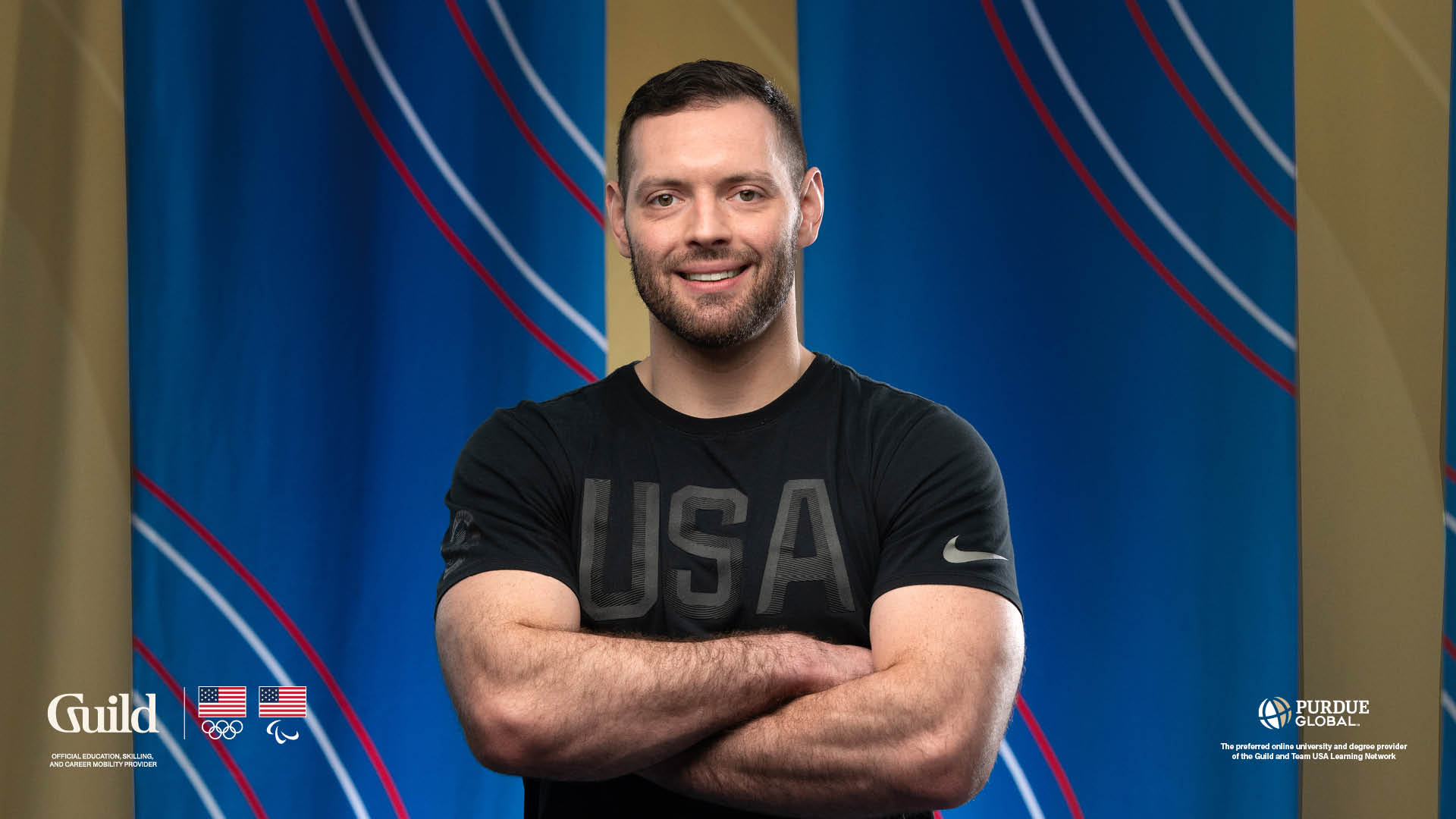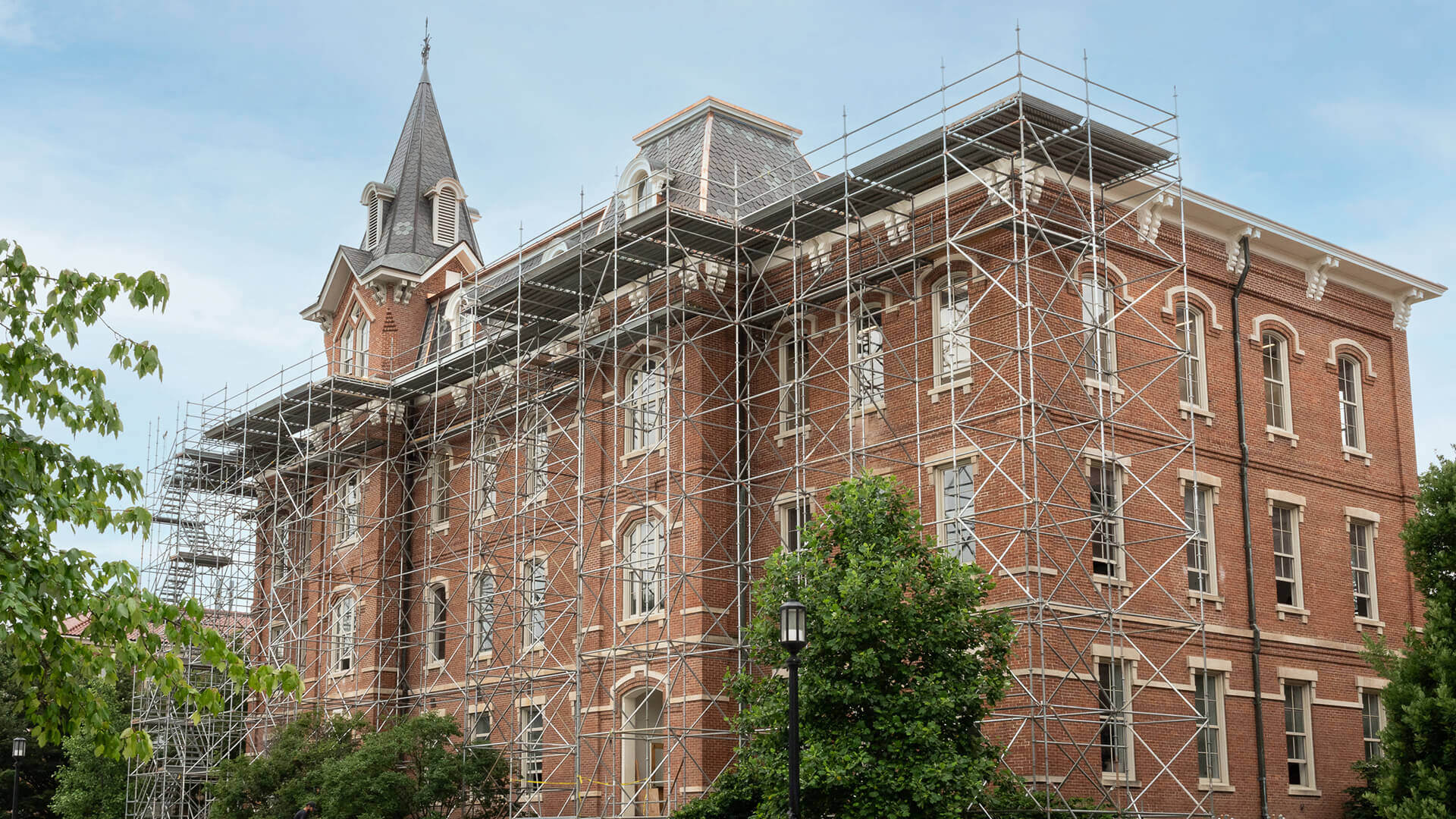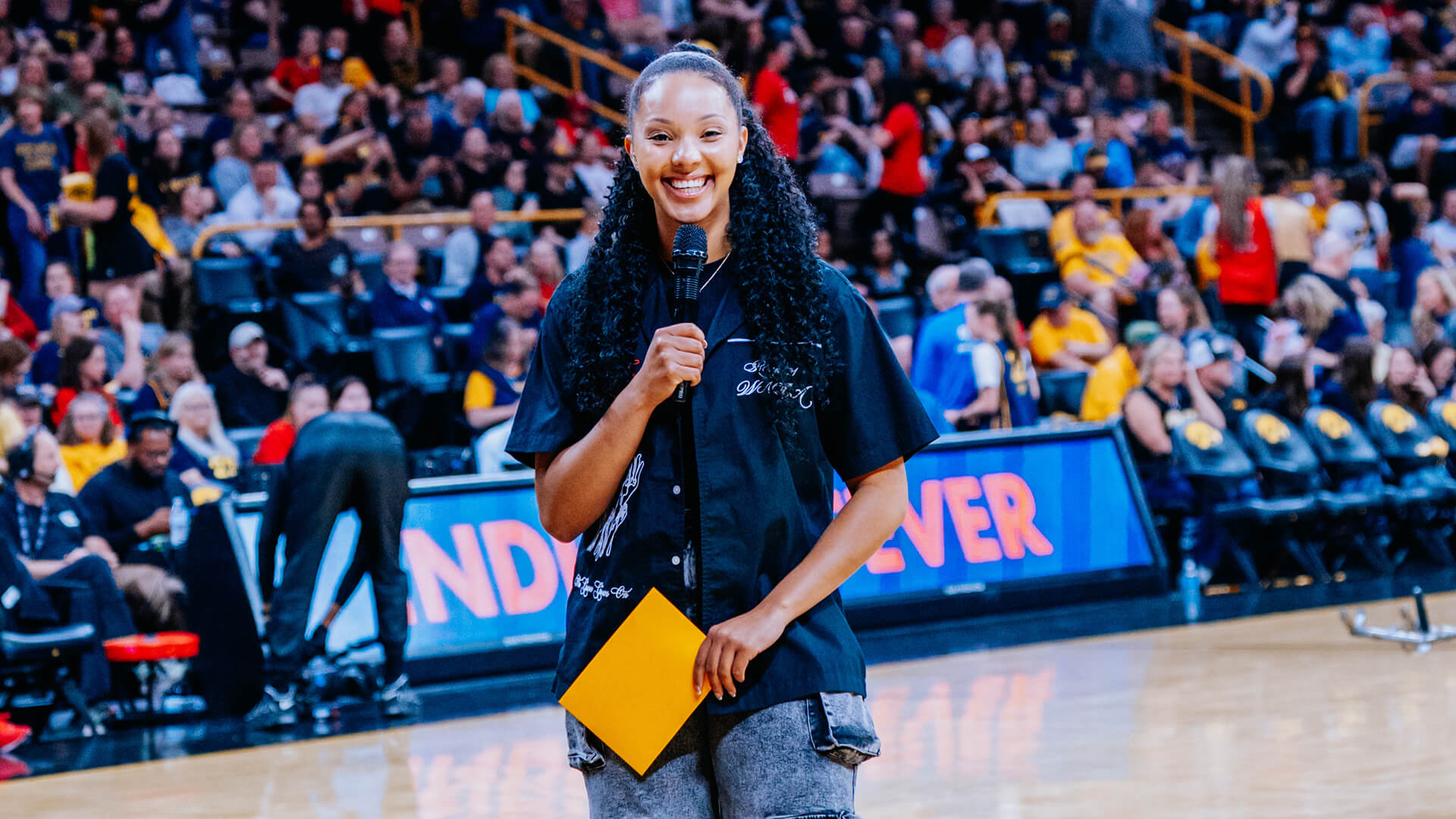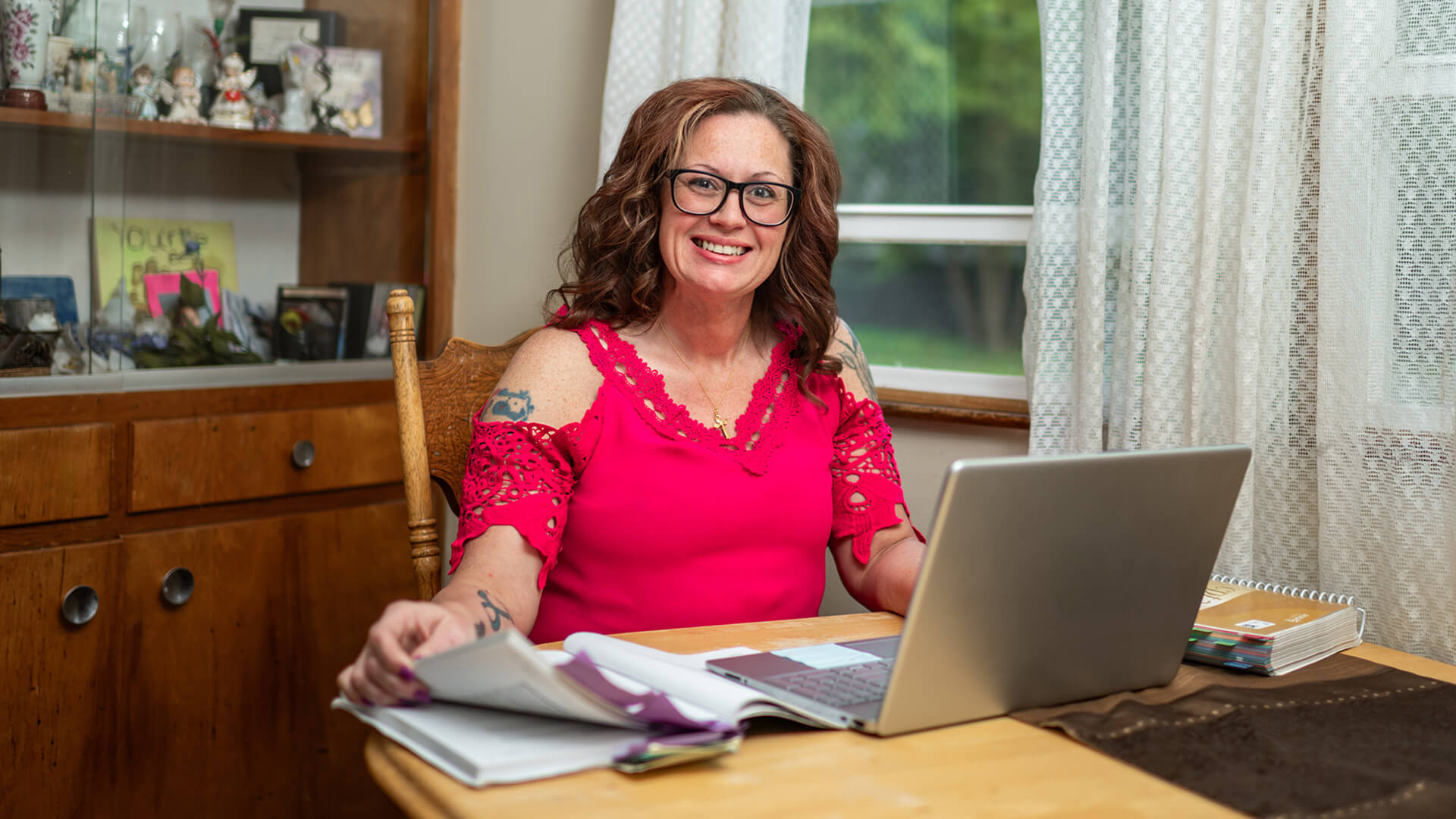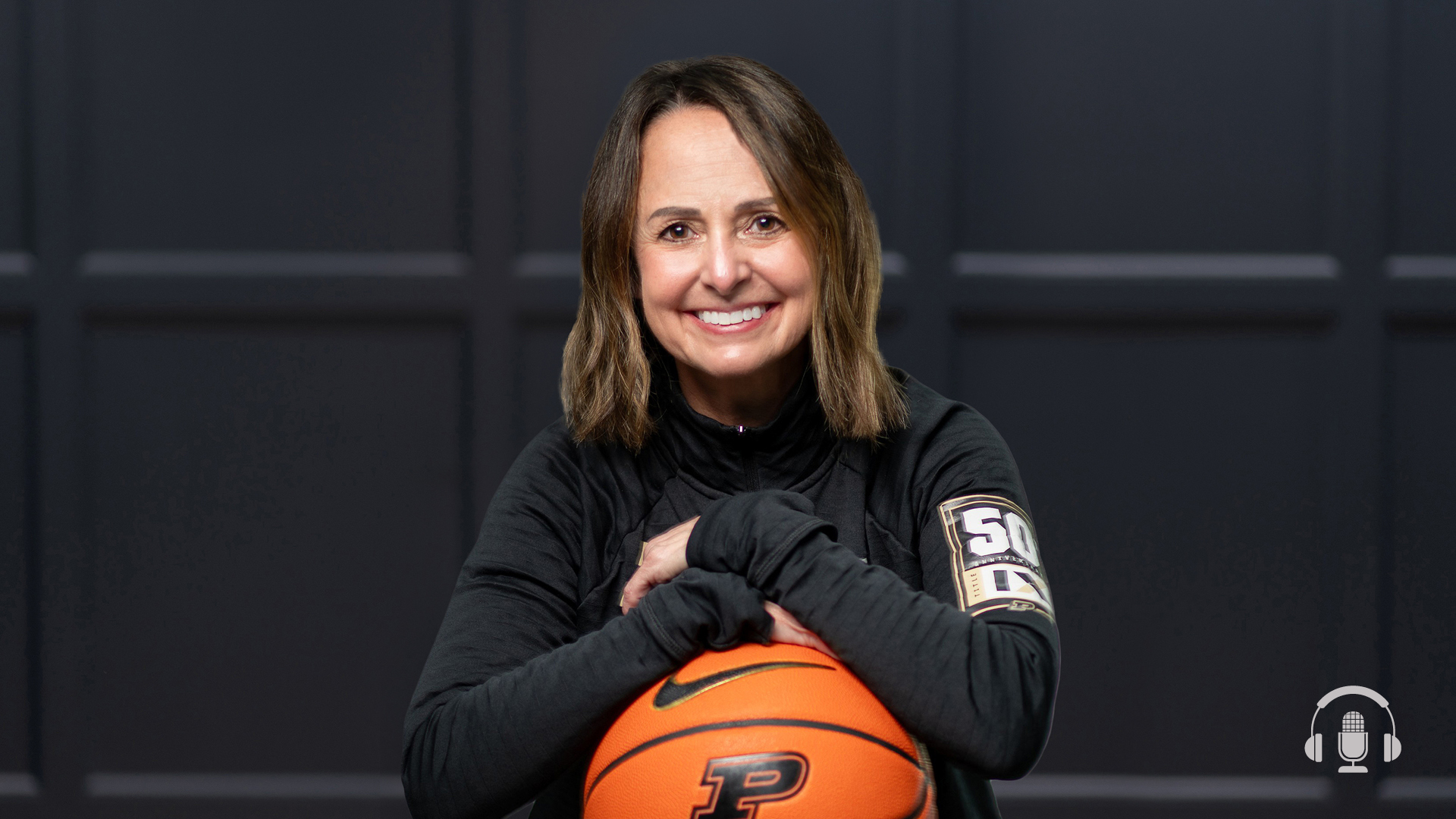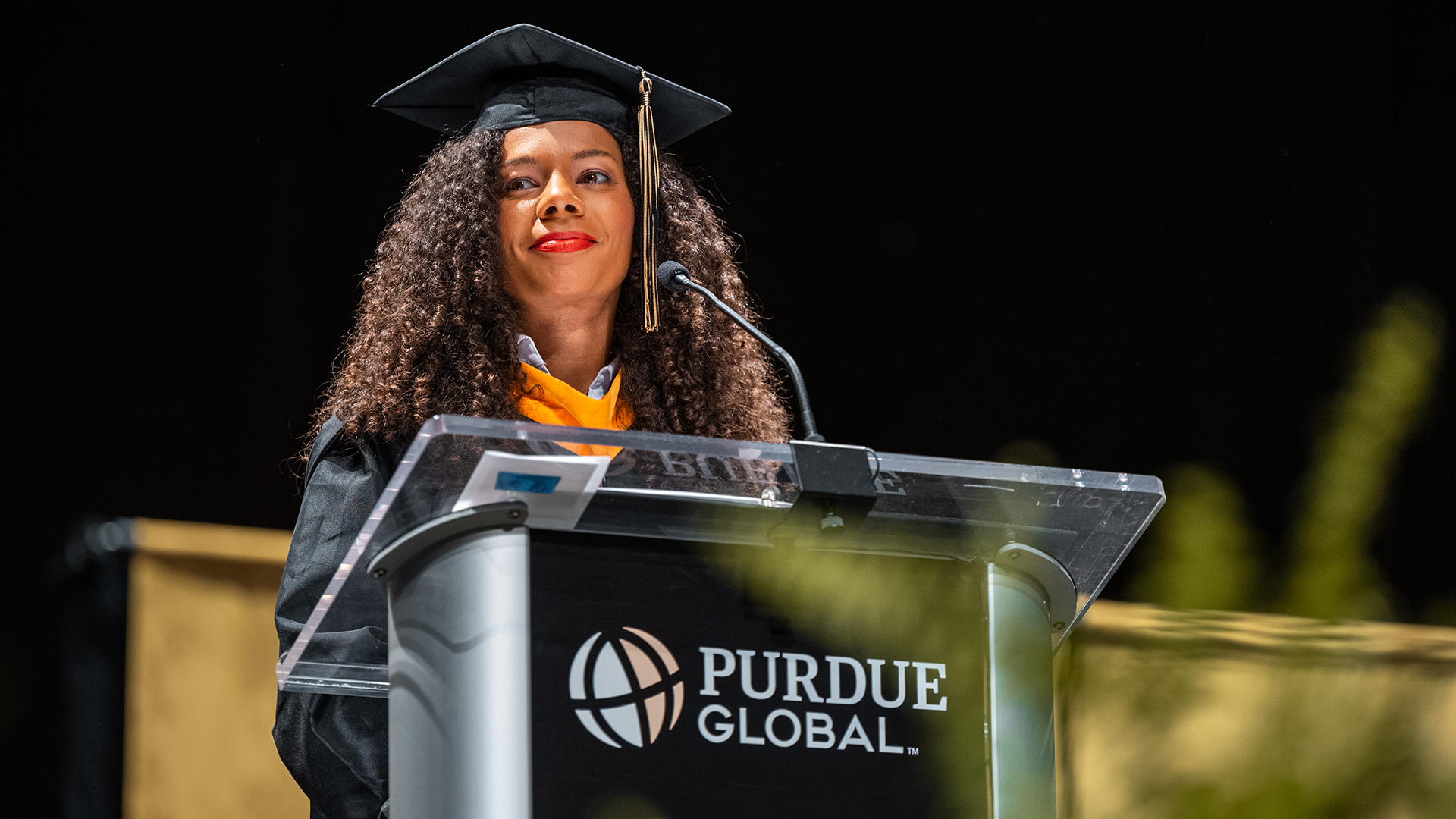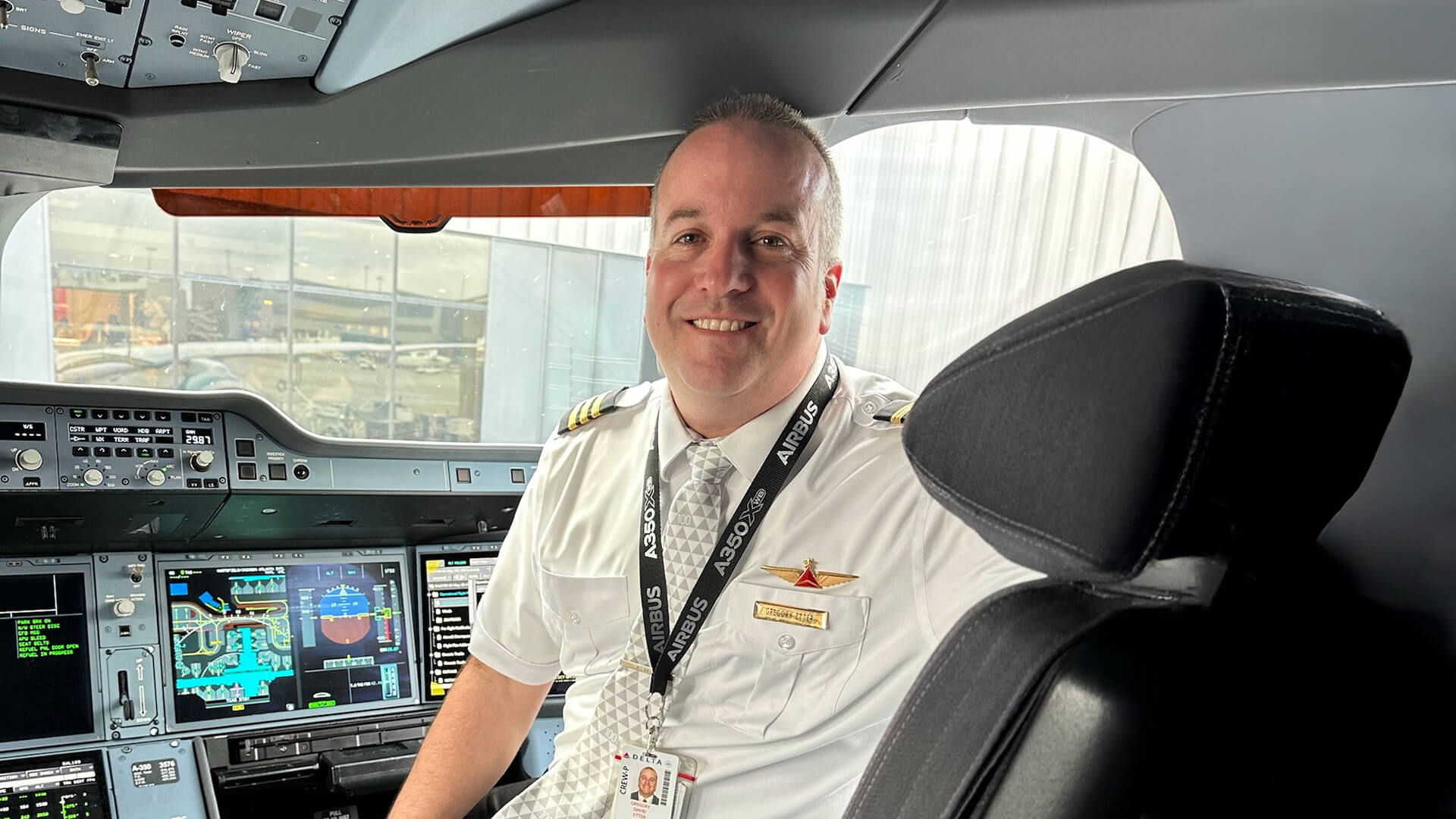Meet Purdue Global professor Ginger Cameron: ‘Why I teach public health’
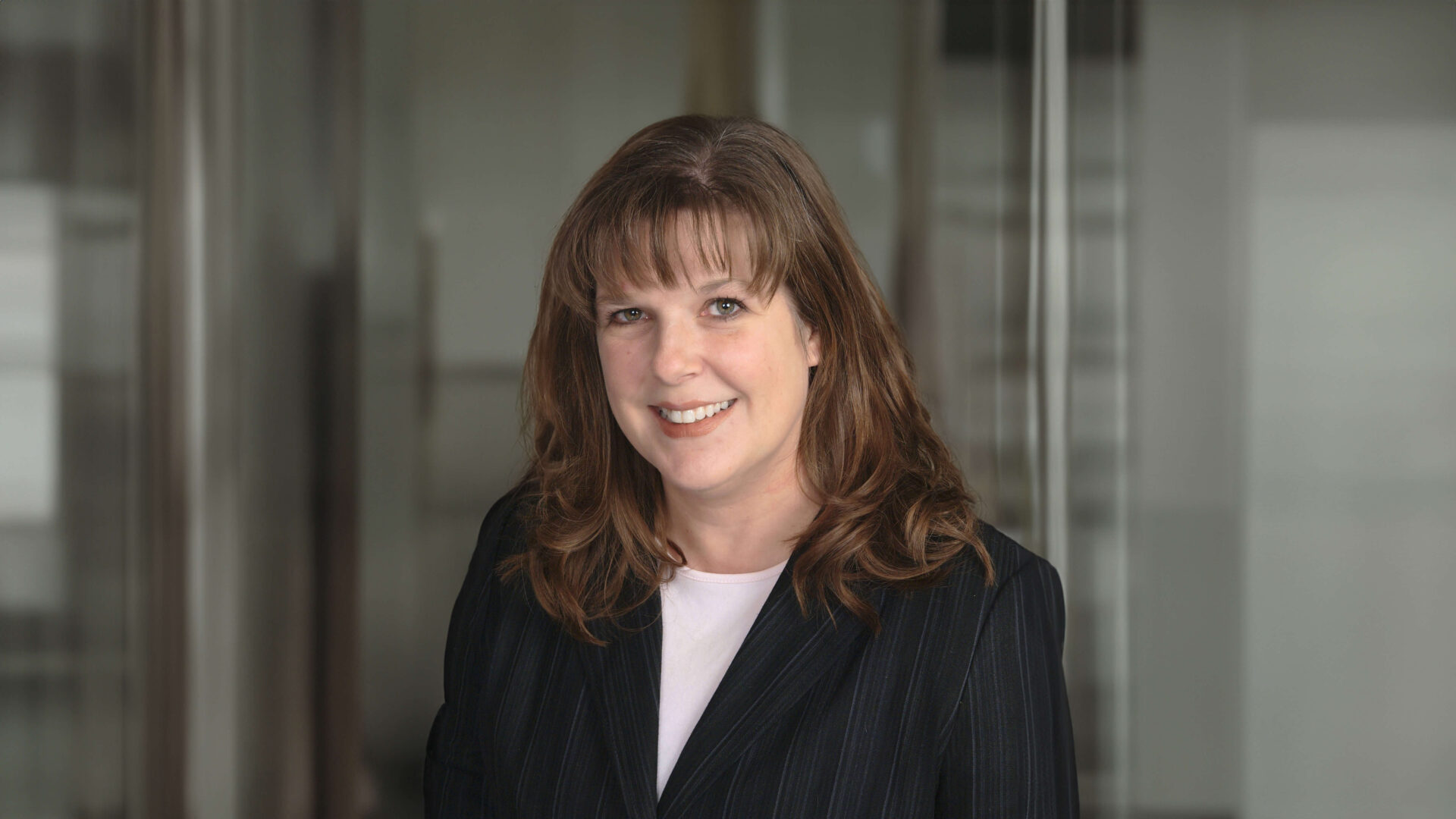
A Purdue Global professor in public health, Ginger Cameron says she hopes her students learn not to be afraid of mistakes. (Purdue University photo/Kelsey Lefever)
She always wanted to be a teacher. She didn’t expect to love epidemiology, too.
I’ve wanted to be a teacher my whole life. I grew up in poverty, and my parents taught me from the day I was born that education is the way out. I knew the magic of education, and I wanted to be a part of it.

Ginger Cameron worked on pandemic response plans in 2020 with several populations, and an Australian community she worked with sent regional artwork as a thank you. (Photo provided)
I also liked to read, so for the longest time I thought I’d teach English literature. But I loved medicine and public health, too. I especially love disease. I could completely geek out on this. I know that’s a weird thing to say, but the history of it is amazing. Wars have been won or lost because of infectious diseases. The United States got the Panama Canal contract when France was hit hard by malaria and yellow fever. The idea that the whole course of human history can be changed by something so small you can’t even see it — it’s fascinating.
When I finally settled on epidemiology, I had one thought: ‘Oh, my gosh, I’m going to have to master math to do this.’ But it didn’t matter. I fell in love with the idea of understanding disease and being able to help other people navigate it. I married it to the one thing I’d always wanted to do: teach.
Many years later, I still combine those things. I bring real projects to my classroom. When I teach my infectious diseases class, students pull and run real data and analyze it. While I was creating pandemic response plans for several populations during the COVID-19 crisis, students helped with one that involved special permissions for a business to stay open. The authenticity of it, knowing they’re doing something that’s not just a class assignment but a real project, they feel more connected and see the value in it.
I tell students flat-out I’m not a science person. I’m not a math person. Well, I wasn’t when I started. I’ve become a scientist. Adult students often feel pressured to do everything perfectly the first time, but I try to create space for failure. I want my classroom to be a place where asking questions is the norm. I don’t want my students feeling embarrassed if they don’t understand something. I didn’t either. Somebody had to take the time to teach these things to me, too.
I grew up in poverty, and my parents taught me from the day I was born that education is the way out.
Ginger
Purdue Global professor

